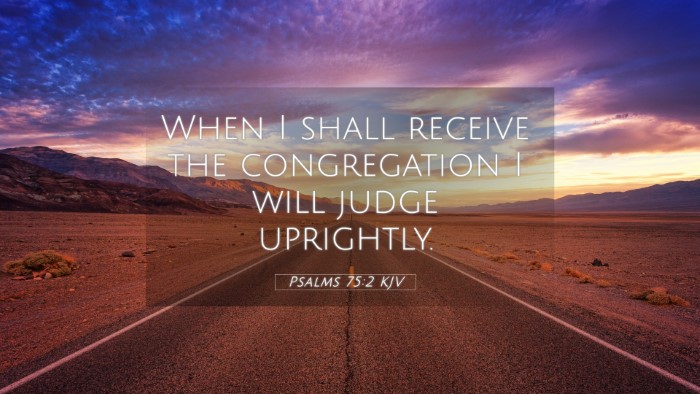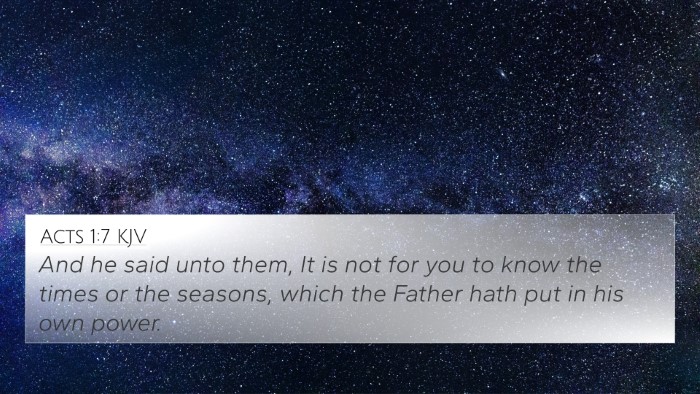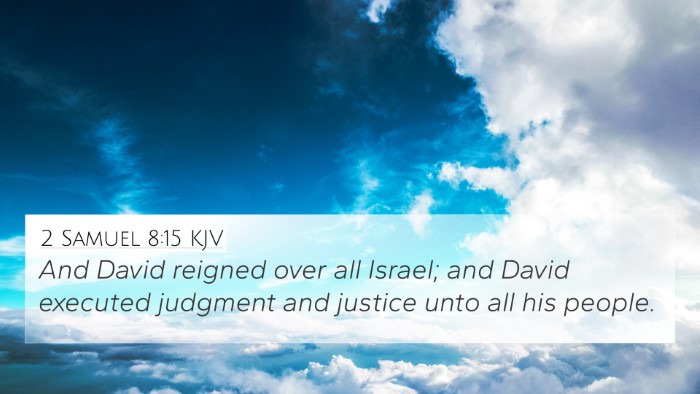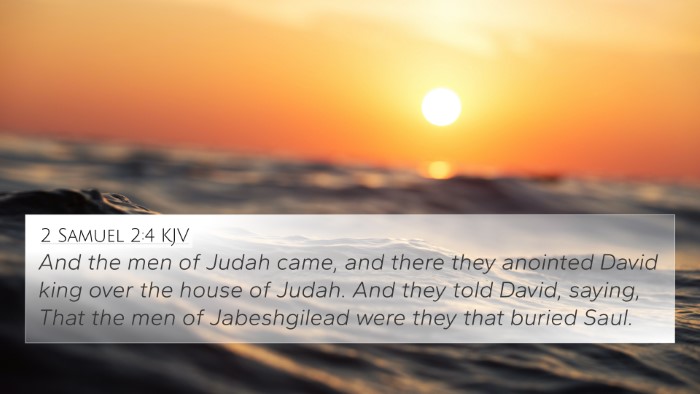Psalms 75:2 - Understanding Through Commentary
Psalms 75:2 states, "When I choose the appointed time, it is I who judge uprightly." This verse highlights the sovereignty and timing of God in matters of judgment and is reflective of divine authority over the affairs of humanity. Below, we delve into interpretations based on the insights of renowned public domain commentators.
Summary of Commentary Insights
The essence of Psalms 75:2 can be understood through the contributions of Matthew Henry, Albert Barnes, and Adam Clarke.
-
Matthew Henry:
Matthew Henry emphasizes that God's timing is perfect and that He has a sovereign choice regarding when and how to act. The phrase "I choose" indicates God’s authority and that His judgments are based on His omniscience, suggesting a divine plan that unfolds at the right time.
-
Albert Barnes:
Albert Barnes points out that the focus is on God's deliberate selection of the appropriate time for judgment. This assertion resounds with assurance that God will ultimately judge nations and individuals with justice. Barnes interprets this as a reminder that believers should trust in God's timing rather than their understanding of events.
-
Adam Clarke:
Adam Clarke adds that the epistle invites a reflection on God's moral governance. The implications are far-reaching, emphasizing that God does not judge hastily but has a specific time and method for all things. Clarke iterates that patience is necessary as we await God's perfect execution of justice.
Bible Verse Cross-References
To further grasp the themes presented in Psalms 75:2, here are some significant Bible verse cross-references:
- Ecclesiastes 3:1: "To everything, there is a season, a time for every purpose under heaven." This verse reinforces the idea of God’s timing.
- Romans 2:6: "He will repay each person according to what they have done." Illustrates God's ultimate judgment.
- Hebrews 10:30: "For we know Him who said, 'It is mine to avenge; I will repay.'" This reiterates divine justice.
- Isaiah 30:18: "Yet the Lord longs to be gracious to you; therefore He will rise up to show you compassion." It highlights God's timing and mercy.
- Galatians 6:9: "Let us not become weary in doing good, for at the proper time we will reap a harvest if we do not give up." This aligns with patience awaiting God's outcome.
- Psalms 103:6: "The Lord works righteousness and justice for all the oppressed." Emphasizes God's righteous judgment.
- Proverbs 16:11: "Honest scales and balances belong to the Lord; all the weights in the bag are of His making." Affirms God's justice in judgment.
- Zephaniah 3:5: "The Lord within her is righteous; He does no wrong. Morning by morning he dispenses His justice." Reiterates God's constant justice.
- 2 Peter 3:9: "The Lord is not slow in keeping his promise, as some understand slowness." A reminder of God's perfect timing.
- Matthew 7:1-2: "Do not judge, or you too will be judged... For in the same way you judge others, you will be judged." Teaches us to reflect on judgment.
Thematic Bible Verse Connections
The themes in Psalms 75:2 connect broadly to other biblical texts concerning God's sovereignty, justice, and the right timing for actions and decisions. Understanding these connections can enhance one's study of scripture and foster deeper spiritual insights.
Exploring Inter-Biblical Dialogue
Analyzing Psalms 75:2 in the context of both the Old and New Testament reveals a rich dialogue about God’s faithful character and the assurance of His righteous judgment. The Old Testament foundation sets the stage for the New Testament fulfillments and deeper revelations of God's nature through Christ.
Conclusion
In studying Psalms 75:2, one is reminded of the importance of trusting God's timing and recognizing His authority in judgment. The insights from Matthew Henry, Albert Barnes, and Adam Clarke provide a well-rounded understanding that encourages believers to remain steadfast in faith, awaiting God's perfect plan.
For those seeking to enhance their understanding of biblical context and applications, utilizing tools for Bible cross-referencing, such as a Bible concordance or a cross-reference Bible study guide, can be invaluable resources.













